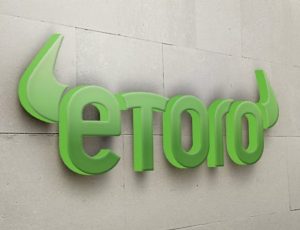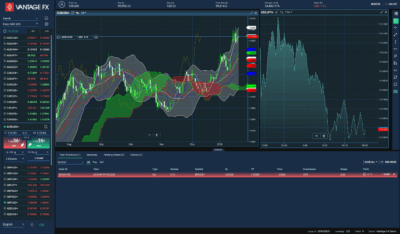Contents
The underlying collateral for REITs, regardless of whether they are privately or publicly traded, is made up of real estate, preferably the kind that produces income. REITs tend to be composed of commercial real estate, but there are those with some residential exposure. Think of a REIT as a mutual fund that owns real property instead of stocks. Instead, they loan money for mortgages to real estate owners or purchase mortgage-backed securities.

Our knowledge, experience and capabilities make us the leader in serving REITs. Dividends are a portion of the taxable income for a company or portfolio. Typically, a public REIT gives away 90% of its revenue to its investors. That leaves the fund with little money to purchase new properties or maintain old ones.
What are the different types of REITs?
As the name suggests, the trust invests in real estate related investments. Investors buy shares in the trust, and the REIT passes income from its holdings to those investors. Because real estate generates different kinds of cash flow, the income that investors receive from a REIT can fall into different categories, each with its own tax rules.
Instead, investors generally must wait until the non-traded REIT lists its shares on an exchange or liquidates its assets to achieve liquidity. These liquidity events, however, might not occur until more than 10 years after your investment. Another thing to note is that REIT dividends do not typically qualify as and, therefore, do not receive the favorable tax treatment accorded to qualified dividends. Depending tradeallcrypto on your tax situation, qualified dividends are dividends that meet certain criteria to be taxed at the lower long-term capital gains tax rate rather than the higher ordinary income tax rate. Please consult your tax advisor regarding your individual tax circumstances. No double taxation.REIT investments do not incur the double taxation that can often affect an investor’s return in a typical operating company.

A minimum of 90% of taxable income must be annually paid out via dividends to shareholders. These will normally be taxed at your regular income tax rate, the same as wages from a job, unless a portion or all of them are “qualified dividends.” Non-traded REITs that are registered with the SEC also must regularly file quarterly and annual reports detailing the financial results of the non-traded REIT. These reports can be found on the SEC’s EDGAR database and are identified as a Form 10-Q for a quarterly report and a Form 10-K for an annual report.
As a result, you may not be able to assess the value or performance of your non-traded REIT investment for significant time periods. Mortgage REITs provide money to real estate owners and operators either directly in the form of mortgages or other types of real estate loans, or indirectly through the acquisition of mortgage-backed securities. Mortgage REITs tend to be more leveraged than REITs that are focused on properties. In addition, many mortgage REITs manage their interest rate and credit risks through the use of derivatives and other hedging techniques. There are investment risks to these leveraging and hedging strategies, and to learn more you should review the risk factors in the latest Form 10-K filed by the mortgage REIT.
Ways To Save Money and Stick To A Budget
A lot of REIT trading strategies revolve around compounding these dividends – this is what is known as a passive income. Obviously, some REITs have higher dividends than others, so if you’re focusing on this strategy, essentials of health care finance 8th edition you’d want to look specifically at each REIT’s pay out history. REITs in 2021, the most recent year of complete information, was an estimated 3.2 million full-time equivalent jobs and $229 billion of labor income.

Sales commissions and upfront offering fees usually total approximately 9 to 10 percent of the investment. These costs lower the value of the investment by a significant amount. Generally, you can purchase the common stock, preferred stock, or debt security of a publicly traded REIT.
Non-traditional commercial real estate
Similar to non-traded REITs, private REITs are not listed making them hard to value and trade. Private REITs also do not regularly file disclosure reports with the SEC possibly making it difficult for you to keep informed of your investment. Instead, private REIT offerings are private placements and rely on an exemption from the obligation to register with the SEC.
- Once built, each property type generates rental income, which, after collecting fees for property management, provides income to its investors.
- Real estate investment trusts are considered a safe investment because they must meet very specific qualifications and guidelines.
- A real estate investment trust (REIT, pronounced “reet”) is a security that directly invests in real estate, by buying and selling property much like stocks on exchanges.
- Our knowledge, experience and capabilities make us the leader in serving REITs.
- As such, publicly traded securities must comply with strict SEC rules aimed at fostering a competitive and fair marketplace.
If you get a larger refund or smaller tax due from another tax preparer, we’ll refund the applicable TurboTax Live Full Service federal and/or state purchase price paid. Box 1b shows “qualified dividends.” These qualified dividends are included in the amount shown in Box 1a and are not in addition to the amount in Box 1a. This portion of qualified dividends gets taxed at lower capital gains rates.
Real estate investment trusts (“REITs”) allow individuals to invest in large-scale, income-producing real estate. A REIT is a company that owns and typically operates income-producing real estate or related assets. These may include office buildings, shopping malls, apartments, hotels, resorts, self-storage facilities, warehouses, and mortgages or loans. Unlike other real estate companies, a REIT does not develop real estate properties to resell them. Instead, a REIT buys and develops properties primarily to operate them as part of its own investment portfolio.
A REIT, or real estate investment trust, owns, operates or finances properties that produce income in a particular sector of the real estate market. Investors can buy publicly traded shares in a REIT, a REIT fund on major stock exchanges or a private REIT to diversify their portfolio and generate income. REITs, or real estate investment trusts, are companies that own or finance income-producing real estate across a range of property sectors. These real estate companies have to meet a number of requirements to qualify as REITs. Most REITs trade on major stock exchanges, and they offer a number of benefits to investors.
Additionally, some REITs may offer higher dividend yields than some other investments. Our seasoned non-traded and private REIT lawyers have decades of experience suing brokerage firms on behalf of investors. We have filed thousands of lawsuits through FINRA arbitration for clients, recovering many millions of dollars on their behalf. The insights and services we provide help to create long-term value for clients, people and society, and to build trust in the capital markets. A business trust or corporation formed under federal and state statues for the purpose of investing in real estate. Investing in real estate without the necessary starting capital can be challenging, but REITs help make it possible.
Get Daily Real Estate News
For example, REIT total return performance over the past 20 years has outstripped the performance of the S&P 500 Index and other major indices–as well as the rate of inflation. Diversification – The portfolio invests in a number of REITs offering diversification trading systems and methods among properties and regions. This type of diversification may help to reduce some of the fluctuations in the real estate market as a result of economic downturns or changes in supply and demand in a specific region or type of property.
Generally, dividends from REITs are automatically exempt from being qualified dividends. Whether dividends are qualified depends on the nature of the investment that earned the money being passed along to shareholders. With traditional IRAs and 401k plans, you pay income tax when you withdraw money from your account.
You can open a brokerage account with any online trading platform and begin purchasing REITs. An example of market fluctuation is the recent economic impact of the COVID-19 pandemic. If you had purchased shares of a commercial equity REIT specializing in Manhattan office space at the end of 2019, you might have been confident that you’d be seeing some big returns right now. You couldn’t possibly have anticipated the impact the pandemic had on emptying those very office buildings whose rental income you were counting on.
Forms & Instructions
Because REITs tend to trade at great volume, they are considered to be highly liquid. Many publicly traded and nontraded REITs are registered with the Securities and Exchange Commission . A real estate investment trust, or REIT, is essentially a mutual fund for real estate.
